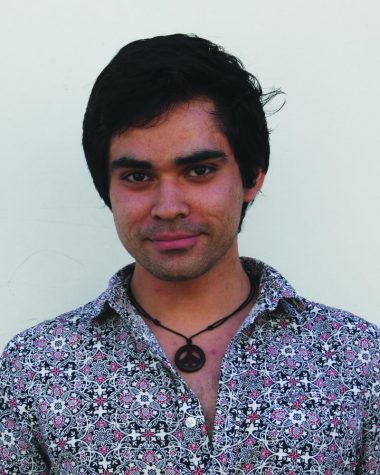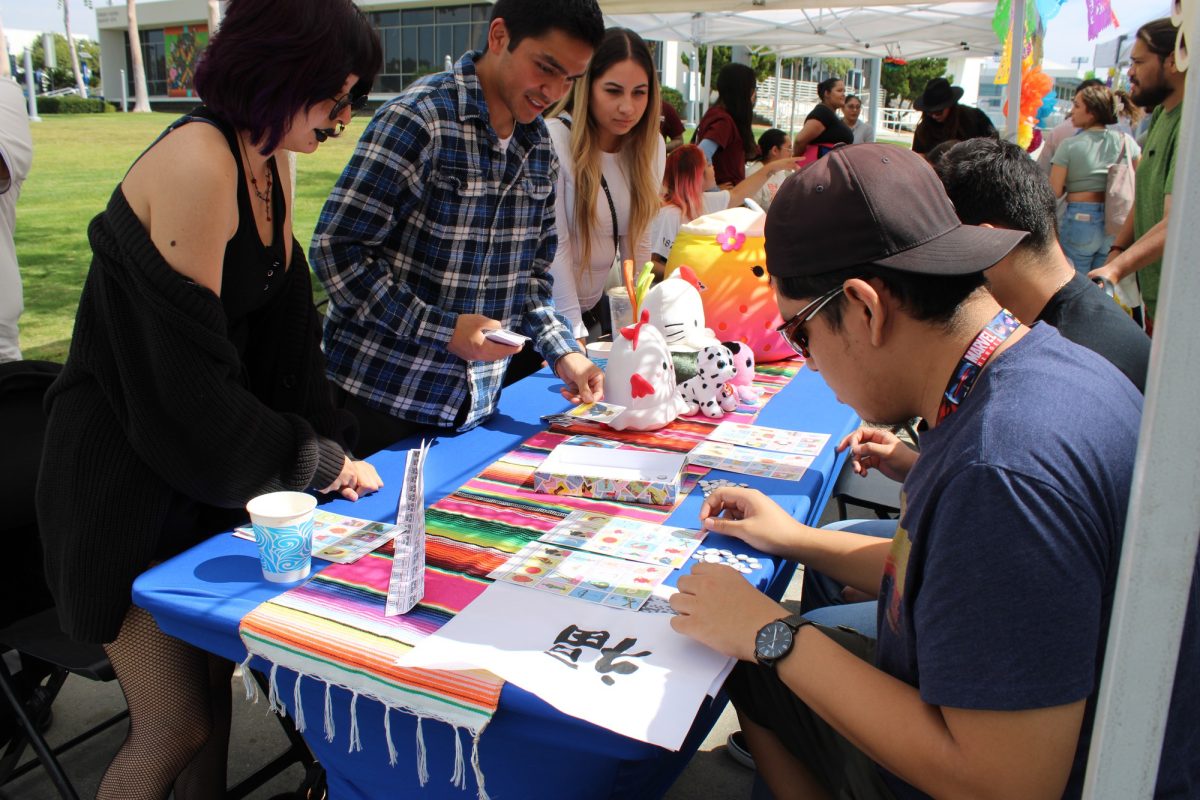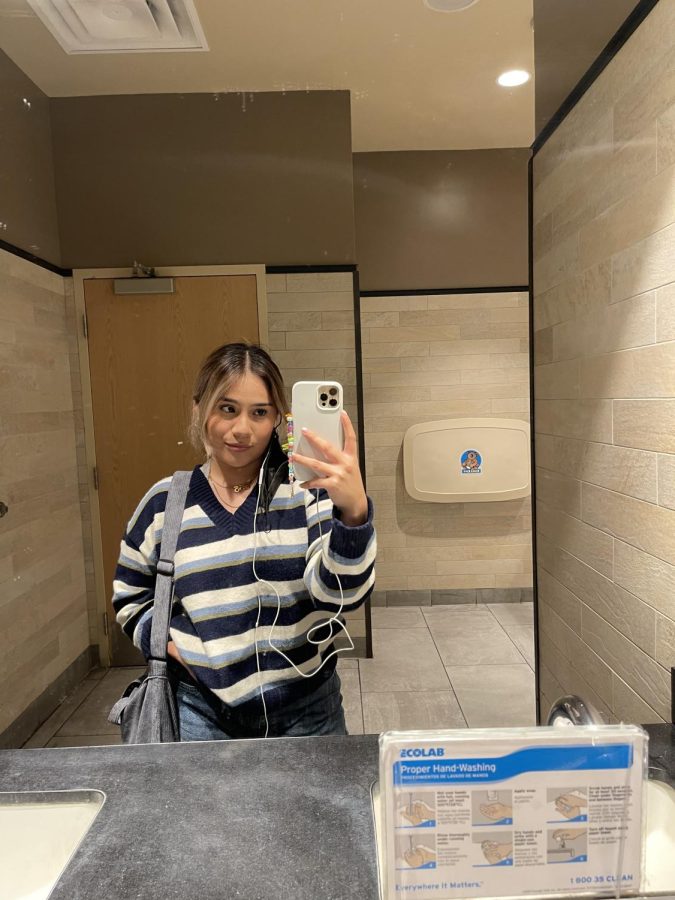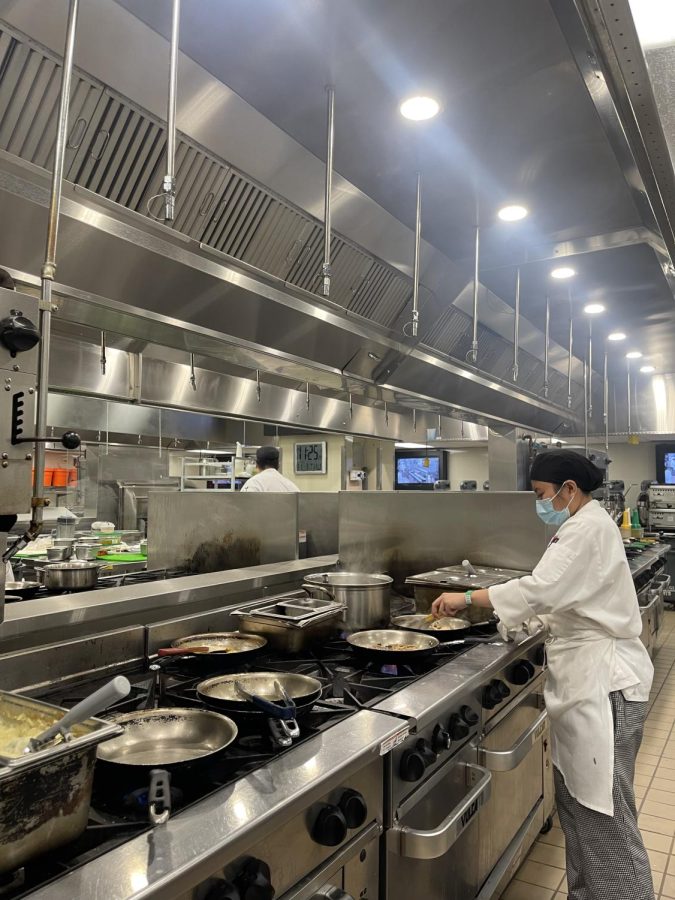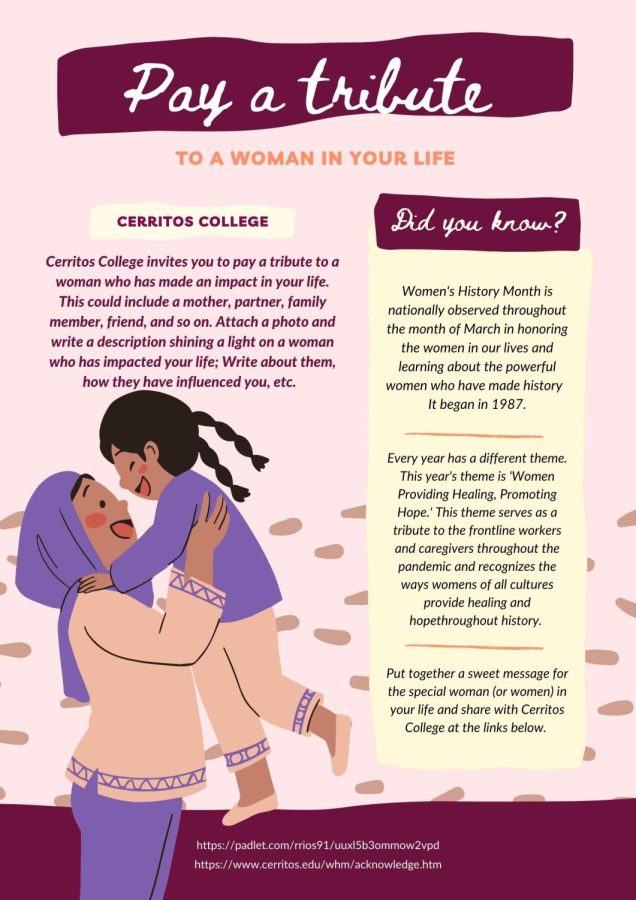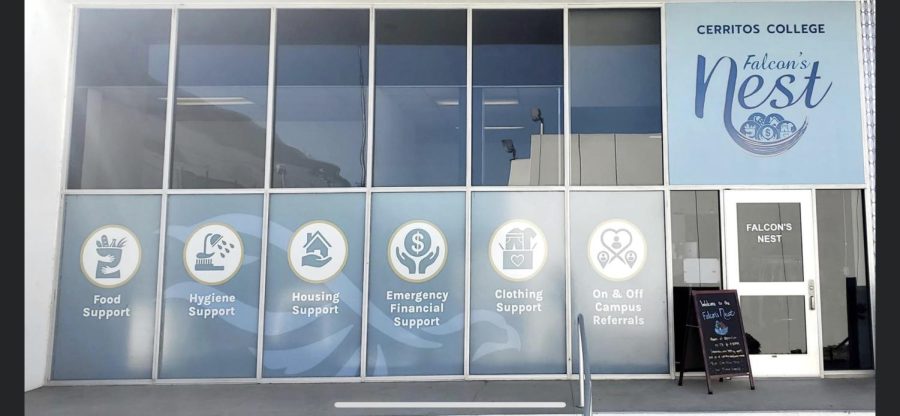According to adjunct faculty in the philosophy and women’s studies departments Kim Berling, it’s a great thing when three experienced women professors, such as herself, Kristine Aslanyan and Miriam Youssef can help young women and men get the “idea of success of women and [the] power of women” working together with men.
To show leadership and positive influence on people a larger group, such as the full house on Tuesday, March 21 at a lecture series for Women’s History Month is better.
“That’s what makes us tick around here as faculty,” Berling said after her talk on the resilience of the women of Nepal who cut the poverty rate in half over the course of eight years, though small industry.
She went on to say that she would like people to realize that there’s hope when men and women work together: “If we’re all in this together, we could actually change things.”
Berling stated that the subject matter of her presentation was comprised of all her personal experiences, after going to Nepal for twenty years and watching the country and women’s attitudes change and become more modern.
“As women get more education and then they begin traveling outside of Nepal, women are learning all these new attitudes; and then they go back to Nepal and they say to their friends ‘we don’t have to marry that dude that mom and dad picked out for us. We can fall in love and date and get married and do our own thing.'”
She lastly said that she is glad that Anna Torres-Bower, the department chair of Philosophy and Women’s studies, asked her to speak at the lecture series.
Torres-Bower explained that this is the second installment of two events concerning women in survival communities; in the fall semester: one was offered in the teleconference center ( which was also standing room only) which revolved around women in the Coptic community, by Women’s and Gender Studies professor Miriam Youssef, who is doing her PhD on the subject.
Torres-Bower commented that “she has a lot extraordinary events and that’s why [they] asked her to share; and that inspired other professors to share stories about women in other communities that have suffered challenges concerning safety, survival of the culture.”
Youssef, who gave a presentation on women in the holocaust said the following: “I hope that [the student body] will think a little bit more critical about the gender dynamics in different cultures in society that they encounter,” and summarized her talk by explaining it was about how survival affects the gender dynamics in different communities and how it gets hard for women to assert their rights in these situations when survival is also on the line.
EOPS program counselor, Kristine Aslanyan, who spoke on the Armenian genocide said “I attended one of the gender equality lecture series by DR. Youssef. and I had some comments to her lecture and then Dr. Torres-Bower heard me and she was like ‘Let’s invite you to be part of another lecture series.'”
More precisely, it was about how ancient history, modern history and the economic factors have affected women’s role in Armenian society.
She went on to say that it doesn’t matter if one is Jewish, Armenian or Nepali, women’s rights issues are global issues and it doesn’t matter if one is from dominant culture or a minority one. It is important to be educated and give oneself the opportunity to not be told what a woman can or cannot do. “It’s pushing the boundaries but also knowing that whatever we wanna do, it’s because we want to do it not because our culture tells us to do so.
“I really like working at Cerritos,” Aslanyan continued: “I love the student body and I love how inclusive and diverse the population, how inclusive the Cerritos College’s administration, how the students are accepting of different cultures and have an incite to unique experiences.”



